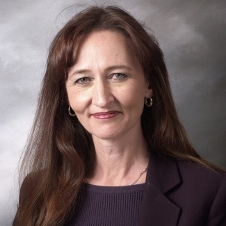Managing Fertility in Perimenopause Years
Question
I heard that women over 42 are pretty much sterile, no matter what. Also, I heard that if your FSH levels are high like something 37, you are automatically sterile for life and never need to use birth control. I had always heard that until you reach a full year of no periods, i.e. menopause, that you should use birth control. Help! I don’t want to be a 52-year-old pregnant woman!
Jane
Answer
Last Updated: July 24, 2013
So, how do you know when you are in menopause and don’t have to be aware of your fertility? Well, menopause is usually defined as the cessation of menstruation for six to twelve months associated with other signs, such as hot flashes. During this time, the FSH is elevated, usually greater than 25. The period leading up to menopause is characterized by waxing and waning ovarian function. There are extended periods of anovulation when the FSH can reach the postmenopausal ranges, but then followed by occasional follicular development and ovulation (and thus a chance of pregnancy). Therefore, FSH should not be used to diagnose menopause in women with continued cycles.
Fertility control in the perimenopausal period takes careful consideration. Although pregnancy rates are lower, the health risks of unexpected pregnancy can be greater, not to mention the lifestyle changes that would be involved. While many physicians may prescribe hormonal contraception in this age group, the risk of death is higher after 40 with oral contraceptives than with pregnancy. According to the Physicians’ Desk Reference, the annual number of deaths from oral contraceptive use after the age of 40 is 31.6/100,000 women if they don’t smoke, 117.2/100,000 women if they do smoke. If the women use no fertility control method, their annual death rate related to the pregnancies is 28.2/100,000 women. In contrast, the women using periodic abstinence had a rate of 3.6/100,000 women. I believe if they had only included the women using the modern techniques of NFP, the rates would have been even lower.
So, clearly, natural family planning is one of the safest options for women over 40. However, is it effective? One study following women from 38-54 years old using the Billings Method showed a method-related pregnancy rate of zero. There was one pregnancy when a woman chose a day of fertility for intercourse. Other studies have also shown that the effectiveness of NFP is greater in the women over 40 as compared to younger age groups. In choosing a natural family planning method, I would suggest a method based on mucus observations, as the temperature will be less helpful due to frequent anovulatory cycles. It is also important to have a trained natural family planning practitioner working with you, to help you gain confidence in the system as quickly as possible.
Truly, Natural Family Planning is a great method from the start of a woman’s reproductive years, til the completion in menopause.
I wish you peace as you make your transition in life.
Sincerely,
Lynn Keenan, MD
Answered By:

Lynn Keenan, MD
Read more related questions
Long Term Health Issues of Chronic Low Progesterone
Hi—I was diagnosed with low progesterone, after noticing ongoing random (not premenstrual) minor brown spotting a couple times per month. I now take 200 mg…
Anxiety Returning to Cycles Postpartum
I am eight months postpartum and still breastfeeding my child although we supplement with formula and she eats solid foods twice daily. Lately, I’ve been…
What to Expect Stopping Pill at 52
What can you expect coming off the pill at 52 and what are the chances of becoming pregnant? Shuri
Can I Use NFP While Taking Tamoxifen
I am 48 and perimenopausal with periods every 26 to 60 days. My husband and I used NFP during most of our married life, but…
Pharmacist Seeks Advice for Inducing a Period Post Pill
I am a pharmacist in Alberta Canada and am hoping you will be able to help me. I have a patient who stopped her Diane…
Want Better Option Than Pill—But it is all I am offered
My name is Jourdan and I am 18, never sexually active, and with no history of breast cancer or cervical cancer in my family (I…
Clots, Meds, and Pregnancy
I am 27 and have residual blood clots in my left arm from 2006. They have not dissolved properly and still show up on my…
Worried What this Bleeding Means
I started my period on April 3 and finished on the 6th of April. I started spotting a dark brown sticky discharge (mucus) with little…
Preparing to Use NFP In Future Marriage
My boy friend and I are planning on getting engaged within the next year, and married about a year or so after that. I have…
Periods Have Not Returned After Stopping Pill
I have come off the pill because I got so that I was not having a period on my free week. It has been a…
Why Am I Spotting?
My last cycle began February 13th. I had intercourse on February 26 around midnight. My cycle is due March 13, which is Friday. I started…
Tail End Brown Bleeding
I am 36 years old and engaged to be married soon. My fiance and I are practicing chastity and I have begun charting with a…

